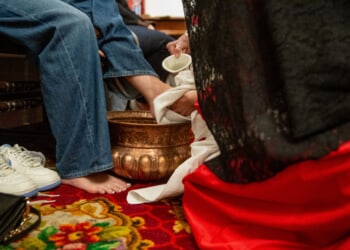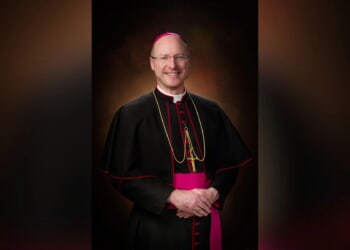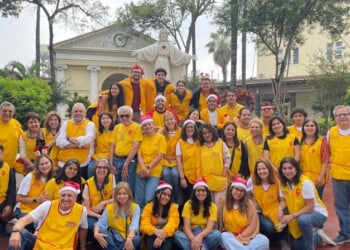After a nearly three-year hiatus from adjudicating a religious liberty case, the Supreme Court is poised to rule on three such cases this spring.
Two of the three cases, scheduled to be heard later in April, respectively deal with whether a Catholic virtual school in Oklahoma can be a charter school and whether Maryland parents can pull their kids out of public-school LGBTQ+ instruction they deem religiously offensive.
How ‘Religious’ Do You Have to Be?
Already heard last week were arguments for a case from Wisconsin in which the justices will decide if a Catholic charity qualifies as a tax-exempt entity. Churches, religious schools, and some religious organizations, of course, qualify by appeal to the religion clauses of the First Amendment for such exemption, but the state supreme court ruled that Catholic Charities of Wisconsin, unlike churches and religious schools, had to pay self-employment tax for its employees.
The reason: According to the state, although the charity’s motives may be religious — its self-stated mission is to “carry on the redeeming work of our Lord by reflecting gospel values and the moral teaching of the church” — its activities are secular in nature. The Wisconsin Supreme Court concluded that the charity did not “attempt to imbue” program participants “with the Catholic faith nor supply any religious materials to program participants or employees.”
The chapter of Catholic Charities run by the Superior Diocese, one of the parties bringing the appeal, is asking “whether Wisconsin can pick and choose which religious groups to tax based on the state’s own cramped, idiosyncratic understanding of what constitutes ‘religious’ behavior.”
At the Supreme Court hearing, the argument boiled down to what is “religious” behavior. Responding to a question by Chief Justice John Roberts, Wisconsin Assistant Attorney General Colin Roth, arguing for the state, said the simplest way the charity could qualify for the exemption would be to proselytize. By asking people to join the faith, Catholic Charities would be engaging in sufficient religious activity to enjoy the exemption.
This turned out to be the wrong answer.
Justice Neil Gorsuch jumped in, according to SCOTUSblog’s Amy Howe, to ask where the line is. Do applicants also have to “repent” to get the exemption, or “is mandatory church attendance versus optional church attendance, that’s the line?”
The requirement to proselytize, inserted Gorsuch and Justice Amy Coney Barrett, would be far more intrusive of religion than a rule forbidding the government to discriminate between religions.
Even Justice Elena Kagan jumped on Roth. She said, according to Howe, “Some religions proselytize. Other religions don’t. Why are we treating some religions better than others based on that element of religious doctrine?” Wisconsin’s rule, she concluded, “basically puts the state on the side of some religions with some doctrine versus other religions with a different doctrine.”
Echoed Gorsuch: “Isn’t it a fundamental premise of our First Amendment that the state shouldn’t be picking and choosing between religions, between certain evangelical sects, and Judaism and Catholicism on the other, for example?”
Indeed, both a Jewish group and the Hare Krishnas, among others, filed amicus briefs for Catholic Charities. The Jewish Coalition for Religious Liberty wrote:
By limiting eligibility for the tax exemption based on the perceived religiosity of an organization’s activities, the State’s approach will require courts to use their own judgment about what activities qualify.
And, frankly, the courts’ judgment is frequently wrong. “Courts are neither empowered nor qualified to decide religious questions,” the brief stated. “They regularly err while engaging in these inquiries. And such errors often redound to the detriment of religious minorities such as Jews.”
Religious Charter Schools and LGBTQ+ Opt-Outs
The case in Oklahoma deals with whether the state can fund a religious charter school. Representatives of St. Isidore of Seville Catholic Virtual School say yes, it may; the state of Oklahoma says no. (RELATED: Stop Discrimination Against Religious Schools)
Charter schools are publicly funded but privately run institutions; they are meant to operate with minimal government intrusion and serve as schools of choice. (RELATED: Scholarships Succeed in Pennsylvania Catholic School)
St. Isidore wants to be granted permission to operate as such a school. It would be an online school run by the Roman Catholic Archdiocese of Oklahoma City and the Diocese of Tulsa. (RELATED: For Baltimore’s Sake, Congress Should Expand School Choice)
It would also be Catholic down to its bones — run like any other Catholic school. That is, it would offer classes devoted to religion, but also, it would weave religious tenets into all aspects of its curriculum — into math, history, literature, science, and every other subject. The principal would, perforce, be Catholic, and probably many of the teachers as well. (RELATED: Oklahoma — And Every Other State — Must Approve Religious Charter Schools)
Is the First Amendment violated when state money finances such an institution?
The Court has ruled in recent cases from Missouri, Maine, and Montana that generally available public money could constitutionally be used in religious schools. That principle, St. Isidore says, “should have resolved this case,” as the school seeks merely “to partake in the benefits of Oklahoma’s charter school program.”
Proponents of St. Isidore see the case as a logical extension of constitutionally protected religious liberty. Opponents contend that a favorable ruling for St. Isidore chips away at — some say destroys — the wall separating church and state.
The Court will hear arguments on April 30.
Mahmoud v. Taylor, the third religious-liberty case before the Court this month, deals with parents upset that they cannot pull their children out of public-school sessions involving LGBTQ-themed storybooks.
In 2022, Montgomery County, Maryland, approved the use of storybooks with LGBTQ characters as part of lessons teaching children how to read. According to an amici brief filed on behalf of the parents, one book, titled Pride Puppy!, an alphabet primer, instructs a “three-and four-year-old audience” “to look for items such as ‘[drag]king,’ ‘leather,’ ‘lip ring,’ ‘[drag]queen,’ and ‘underwear.’”
Originally, the county informed concerned parents when such books would be used and allowed them to keep their children out of those lessons. But in 2023, the county suspended its policy because the growing number of opt-out requests gave rise to “high student absenteeism, the infeasibility of administering opt-outs across classrooms and schools, and the risk of exposing students who believe the storybooks represent them and their families to social stigma and isolation.” Attendance by all students would be mandatory.
Christian, Jewish, and Muslim parents appealed to the federal court, saying that their kids’ exposure to the storybooks “‘necessarily establishes the existence of a ‘burden’ on their right to freely exercise their religion,” according to the court brief.
Wrote Christopher Mills, in an amici brief supporting the parents:
Especially given the topics of these forced readings — sensitive and deeply personal issues regarding sexuality and gender that have not traditionally been part of public school curriculum — the school district’s “influence” comes at the expense of the moral and religious instruction of many believers across many faiths.
The Court is scheduled to hear Mahmoud v. Taylor on April 22.
READ MORE from Tom Raabe:
Hackman and Hoosiers — A Winning Team
Christian Churches Mark 1,700th Anniversary of the Nicene Creed




![Jasmine Crockett Justifies Mass Illegal Immigration With Bizarre Argument [WATCH]](https://www.right2024.com/wp-content/uploads/2025/03/1742007023_Jasmine-Crockett-Justifies-Mass-Illegal-Immigration-With-Bizarre-Argument-WATCH-350x250.jpg)


![NYC Tourist Helicopter Falls into Hudson River, Siemens Executive and Family Among Those Killed [WATCH]](https://www.right2024.com/wp-content/uploads/2025/04/NYC-Tourist-Helicopter-Falls-into-Hudson-River-Siemens-Executive-and-350x250.jpg)








